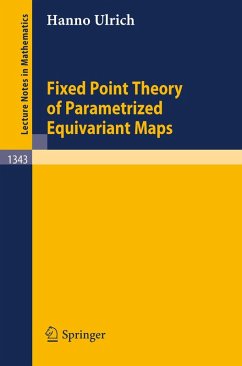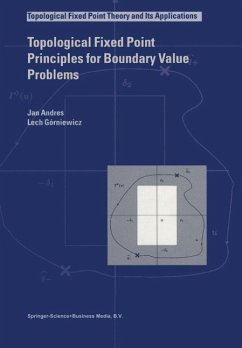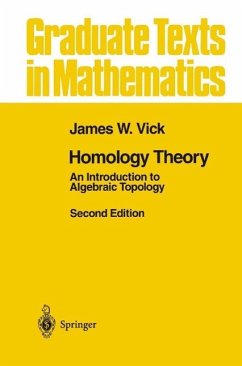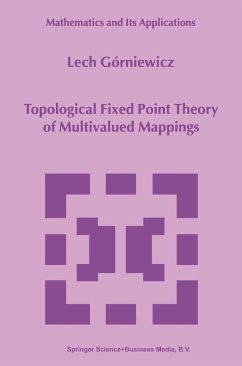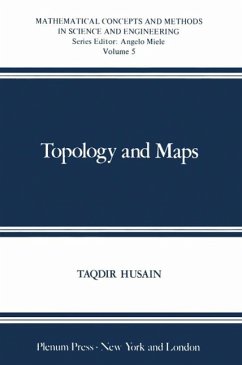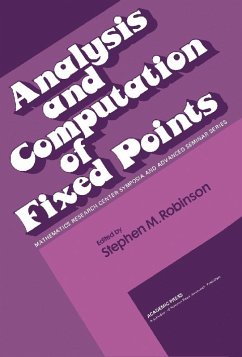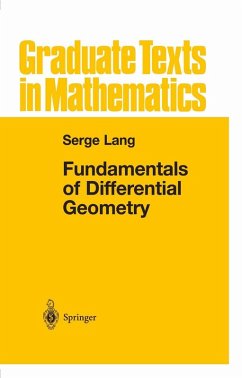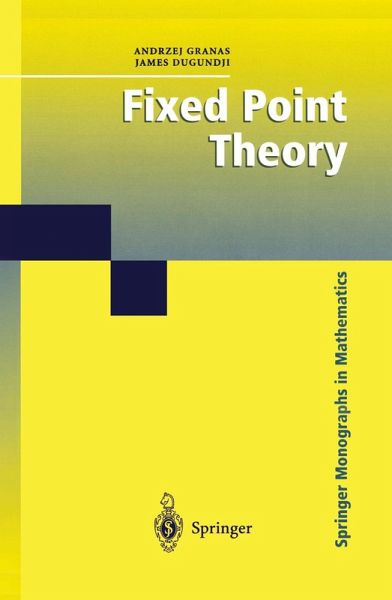
Fixed Point Theory (eBook, PDF)
Versandkostenfrei!
Sofort per Download lieferbar
167,95 €
inkl. MwSt.
Weitere Ausgaben:

PAYBACK Punkte
84 °P sammeln!
"Granas-Dugundji's book is an encyclopedic survey of the classical fixed point theory of continuous mappings (the work of Poincaré, Brouwer, Lefschetz-Hopf, Leray-Schauder) and all its various modern extensions. This is certainly the most learned book ever likely to be published on this subject."-Felix Browder, Rutgers University"The theory of Fixed Points is one of the most powerful tools of modern mathematics. Not only is it used on a daily basis in pure and applied mathematics, but it also serves as a bridge between Analysis and Topology, and provides a very fruitful area of interaction be...
"Granas-Dugundji's book is an encyclopedic survey of the classical fixed point theory of continuous mappings (the work of Poincaré, Brouwer, Lefschetz-Hopf, Leray-Schauder) and all its various modern extensions. This is certainly the most learned book ever likely to be published on this subject."
-Felix Browder, Rutgers University
"The theory of Fixed Points is one of the most powerful tools of modern mathematics. Not only is it used on a daily basis in pure and applied mathematics, but it also serves as a bridge between Analysis and Topology, and provides a very fruitful area of interaction between the two. This book contains a clear, detailed and well-organized presentation of the major results, together with an entertaining set of historical notes and an extensive bibliography describing further developments and applications."
-Haïm Brézis, Université Pierre et Marie Curie
"In this monograph, no effort has been spared, even to the smallest detail, be it mathematical, historical or bibliographical. In particular, the necessary background materials are generously provided for non-specialists. In fact, the book could even serve as an introduction to algebraic topology among others. It is certain that the book will be a standard work on Fixed Point Theory for many years to come."
-Isaac Namioka, University of Washington
This monograph gives a carefully worked out account of the most basic principles and applications of the theory of fixed points. Until now, a treatment of many of the discussed topics has been unavailable in book form. The presentation is self-contained and is accessible to a broad spectrum of readers. The main text is complemented by numerous exercises, detailed comments, and a comprehensive bibliography. The first part of this book is based on "Fixed Point Theory I" which was published by PWN, Warsaw in 1982. The second part follows the outline conceived by Andrzej Granas and the late James Dugundji.
-Felix Browder, Rutgers University
"The theory of Fixed Points is one of the most powerful tools of modern mathematics. Not only is it used on a daily basis in pure and applied mathematics, but it also serves as a bridge between Analysis and Topology, and provides a very fruitful area of interaction between the two. This book contains a clear, detailed and well-organized presentation of the major results, together with an entertaining set of historical notes and an extensive bibliography describing further developments and applications."
-Haïm Brézis, Université Pierre et Marie Curie
"In this monograph, no effort has been spared, even to the smallest detail, be it mathematical, historical or bibliographical. In particular, the necessary background materials are generously provided for non-specialists. In fact, the book could even serve as an introduction to algebraic topology among others. It is certain that the book will be a standard work on Fixed Point Theory for many years to come."
-Isaac Namioka, University of Washington
This monograph gives a carefully worked out account of the most basic principles and applications of the theory of fixed points. Until now, a treatment of many of the discussed topics has been unavailable in book form. The presentation is self-contained and is accessible to a broad spectrum of readers. The main text is complemented by numerous exercises, detailed comments, and a comprehensive bibliography. The first part of this book is based on "Fixed Point Theory I" which was published by PWN, Warsaw in 1982. The second part follows the outline conceived by Andrzej Granas and the late James Dugundji.
Dieser Download kann aus rechtlichen Gründen nur mit Rechnungsadresse in A, B, BG, CY, CZ, D, DK, EW, E, FIN, F, GR, HR, H, IRL, I, LT, L, LR, M, NL, PL, P, R, S, SLO, SK ausgeliefert werden.





